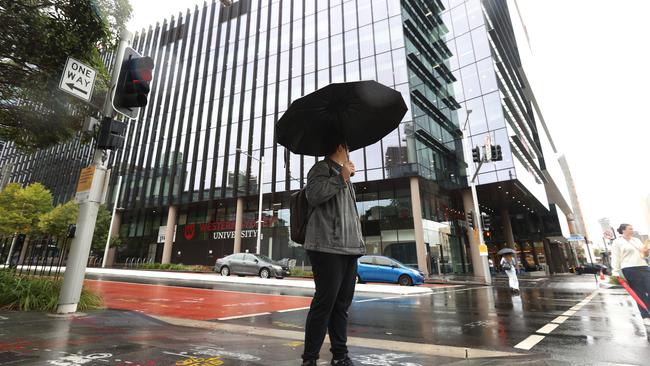Universities must lock in more student beds but reject caps on international intake
Student housing developers have rejected Coalition plans to slash the intake from offshore but want universities to guarantee beds for first-year international students.

The student accommodation sector has rejected Coalition plans to slash international student numbers, arguing that city universities should instead guarantee beds for students coming to Australia.
The sector is backed by some of the world’s largest investors hailing from Asia, Europe and North America, as well as local funds, pitting them against the plans that could hurt returns, putting their investment at risk and potentially worsening the supply crisis.
Peter Dutton on Sunday announced he would slash international student numbers by about 80,000 enrolments.
The Coalition vowed to bring in a flat 25 per cent cap on foreign students at universities, which would see overall numbers drop to about 240,000. The annual intake would be split between public universities at 115,000 and 125,000 in the VET sector, private universities and other providers.
The student accommodation sector has rejected the claims of a link between the housing crisis and student arrivals, saying it is adding to the national stock with new buildings designed for students, and they had little impact on the wider housing market.
The sector is now urging city universities to ensure that international students coming to Australia are housed properly.
The Student Accommodation Council called for an “accommodation guarantee” for all first-year international students at metropolitan universities instead of what it dubbed a “blunt cut” to visa numbers under Coalition plans. It said the next government should require universities to provide the guarantee, with student accommodation providers to deliver the beds.

Student Accommodation Council executive director Torie Brown said the move to cut international students would have little housing impact but a very real economic one. “If governments want to remove any impact of students coming from overseas to study in the rental market, they should ask universities to help students find suitable student-only housing before they arrive in the country,” she said.
Ms Brown said students were not the cause of the housing crisis but the guarantee would fill existing student-only beds and unlock the development of more student accommodation. “Purpose-built student accommodation is the only accommodation reserved exclusively for students that can be secured before they land in Australia,” she said.
A report for the Student Accommodation Council by Mandala showed the previously proposed caps at 270,000 students would lower the share of international students in the rental market from 5.4 per cent to 4.8 per cent in 2026 and lower rents by $5 a week.
“International students are a scapegoat, not the cause of the rental crisis,” Ms Brown said. “Lowering one of our largest exports, one not impacted by the recently announced tariffs by America, will only weaken our economy.”
Previous modelling of a higher cap of 270,000 students found it would cause a $4.1bn economic hit and cost 22,000 jobs.
Many of the world’s largest institutions are invested in the sector, including Australia’s Future Fund, which has backed a $1.6bn play by US group Greystar to enter the sector, as well as a series of international groups via industry leader Scape, and local superannuation funds that back Campus Living Villages.
Scape founder and executive chairman Craig Carracher questioned the logic of slashing student numbers when there were facilities ready to take students.
“Why lose $5bn in economic value when beds are available and can link new first-year students with purpose-built student accommodation and university student accommodation that no one else can live in,” he said.
“We have beds available so a simple link of one bed for one new visa is a simple policy and removes the inaccurate and unsubstantiated comments that international students are driving rents up, which is fallacious at best and mischievous at worst.”






To join the conversation, please log in. Don't have an account? Register
Join the conversation, you are commenting as Logout